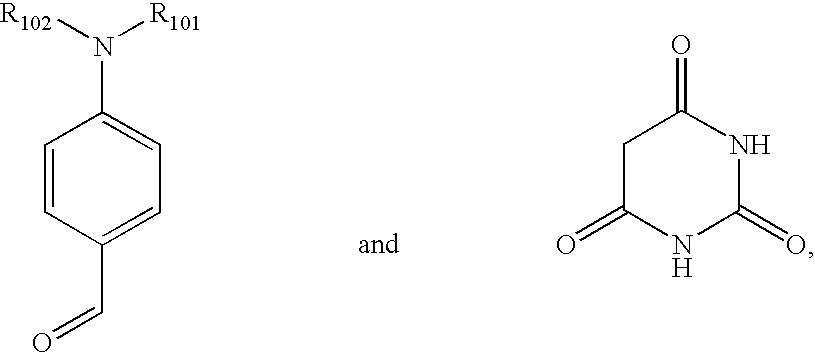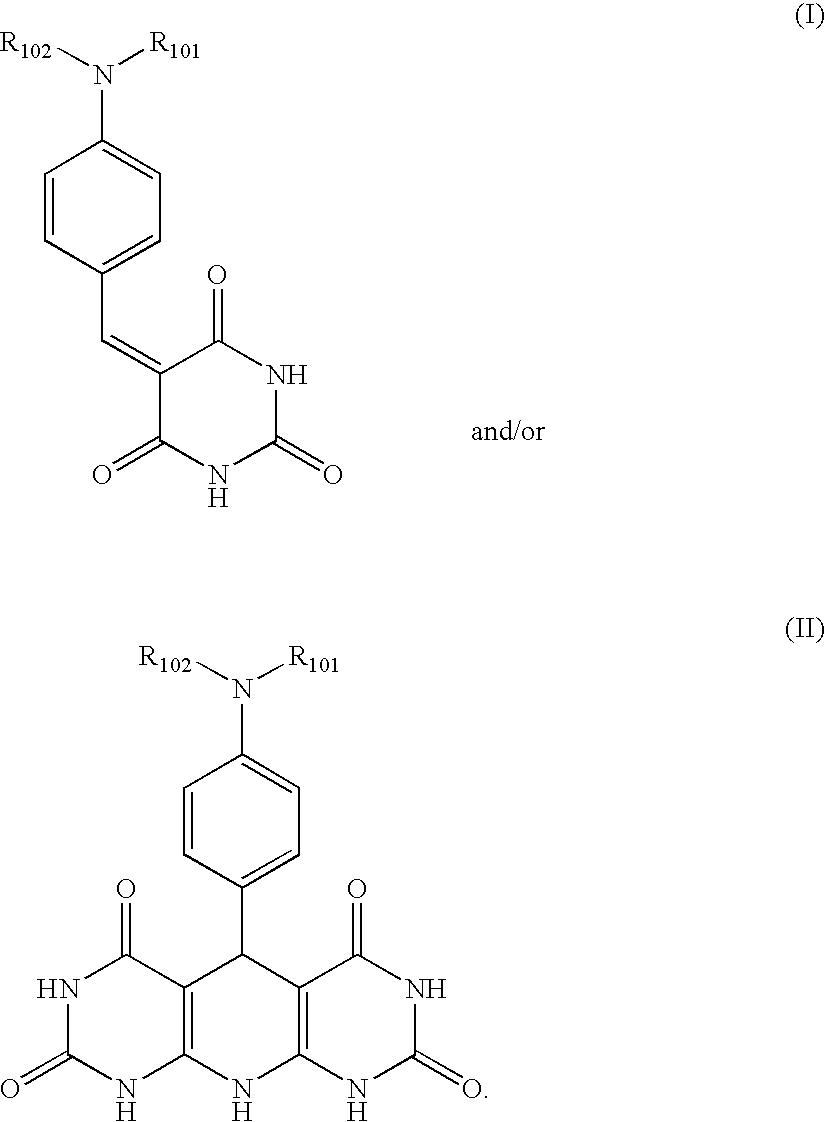Process for producing metal oxide flakes
a metal oxide and flakes technology, applied in the field of processing for producing metal oxide flakes, can solve the problems of not being suitable for forming reflective metallic core pigments in highly acidic conditions
- Summary
- Abstract
- Description
- Claims
- Application Information
AI Technical Summary
Benefits of technology
Problems solved by technology
Method used
Image
Examples
example 1
[0121]3 grams of Tetraethyl orthosilicate, 0.03 grams of Tomadol® (non-ionic surfactant) and 3 grams of a 1% poly(4-styrenesulfonic acid) solution in water are mixed in a sonicator to form a clear solution. 12 grams of water is added to dilute the mixture. This solution is coated on a 12×12″ polyester sheet with a No 2.5 drawdown rod (wet thickness: ˜10 microns). The polyester sheet is placed in a microwave oven and treated with microwave radiation for 2 minutes and then rinsed with water to wash off the silicon oxide flakes. The flakes are collected in a beaker and dried. After drying the approximately 120 nm flakes become more colored as the refractive index of air differs from that of the water which surrounded the wet flakes.
example 2
[0122]A solution of zirconium tetrabutoxide in n-hexane is applied to a polyester film, which has been coated with polystyrenesulfonic acid. The film is then passed through a dryer in which the film is exposed to a stream of a 120° C. nitrogen gas to remove more than 90% of the n-hexane to form a zirconium tetraburoxide film. The thus coated polyester film is passed through a chamber in a conditioned state of 80% in relative humidity and treated with microwave to effect hydrolysis and condensation of zirconium tetrabutoxide, placed in a vessel containing water and treated by ultrasound to separate the flakes from the film. The stripped flakes are then recovered from water by means of a filter and calcinated at about 750° C. to obtain flaky zirconia.
example 3
[0123]The process of Example 2 is repeated using instead of a solution of zirconium tetraburoxide a solution of titanium tetramethoxide in methanol.
PUM
| Property | Measurement | Unit |
|---|---|---|
| thick | aaaaa | aaaaa |
| temperature | aaaaa | aaaaa |
| temperature | aaaaa | aaaaa |
Abstract
Description
Claims
Application Information
 Login to View More
Login to View More - R&D
- Intellectual Property
- Life Sciences
- Materials
- Tech Scout
- Unparalleled Data Quality
- Higher Quality Content
- 60% Fewer Hallucinations
Browse by: Latest US Patents, China's latest patents, Technical Efficacy Thesaurus, Application Domain, Technology Topic, Popular Technical Reports.
© 2025 PatSnap. All rights reserved.Legal|Privacy policy|Modern Slavery Act Transparency Statement|Sitemap|About US| Contact US: help@patsnap.com


